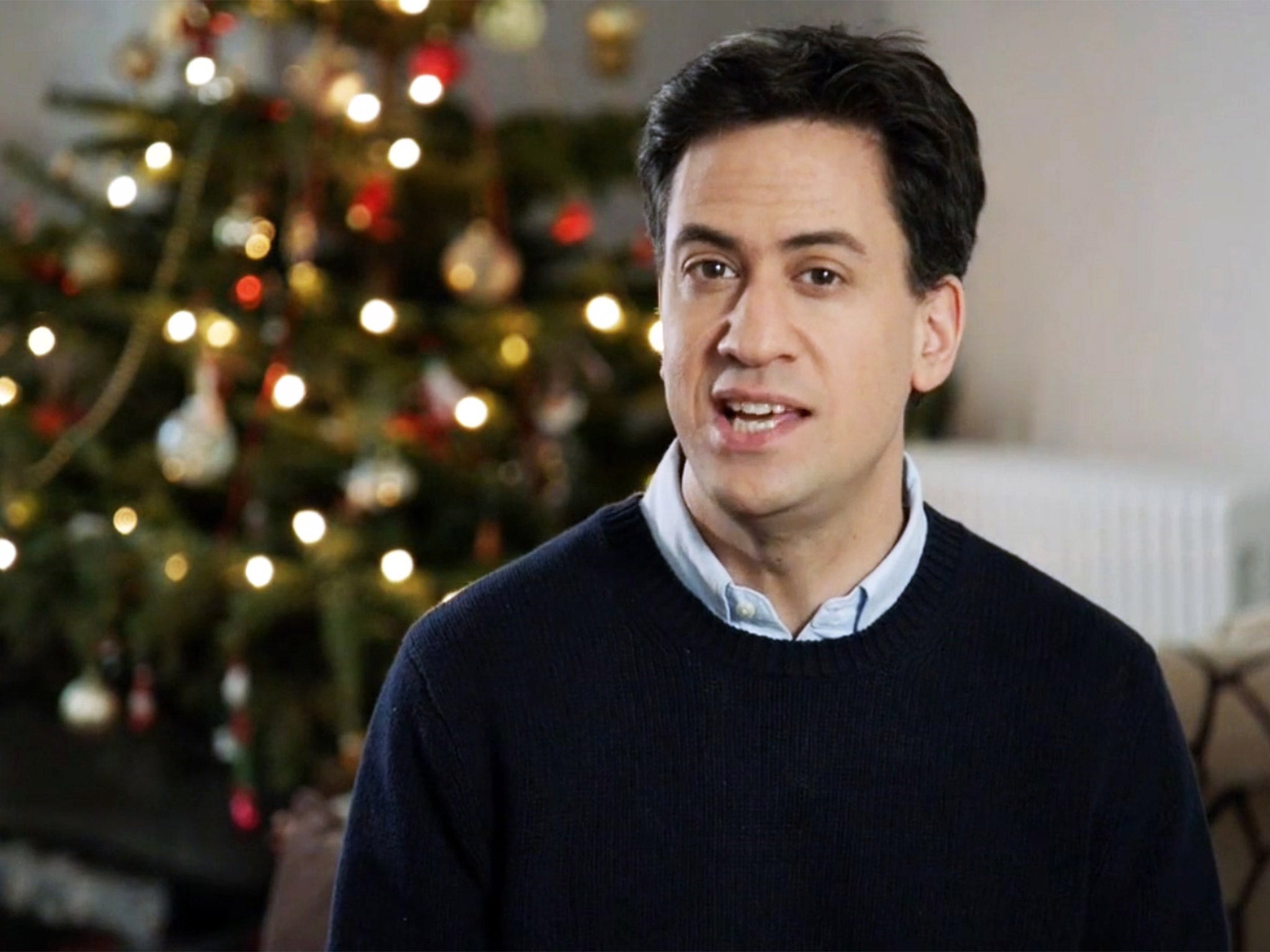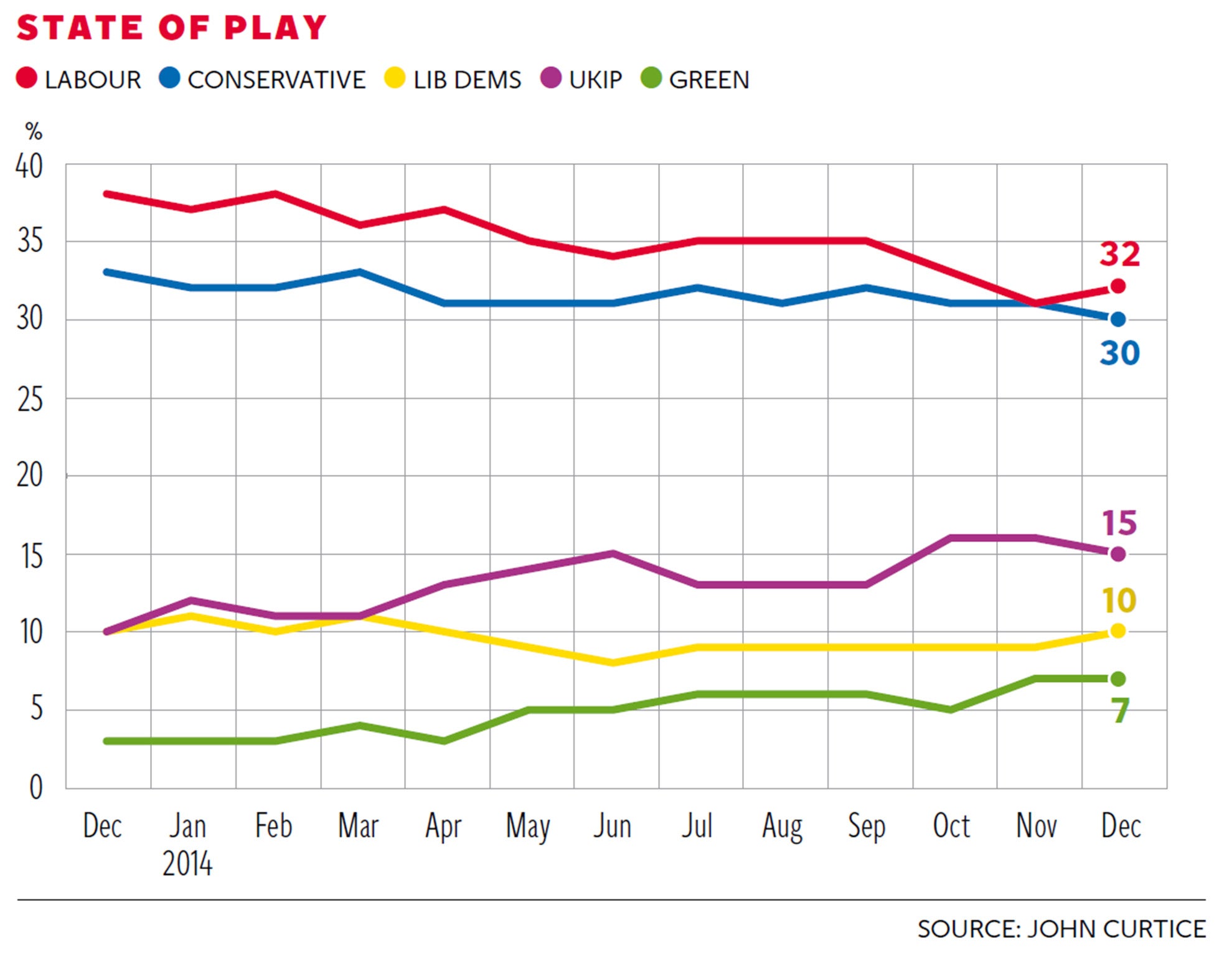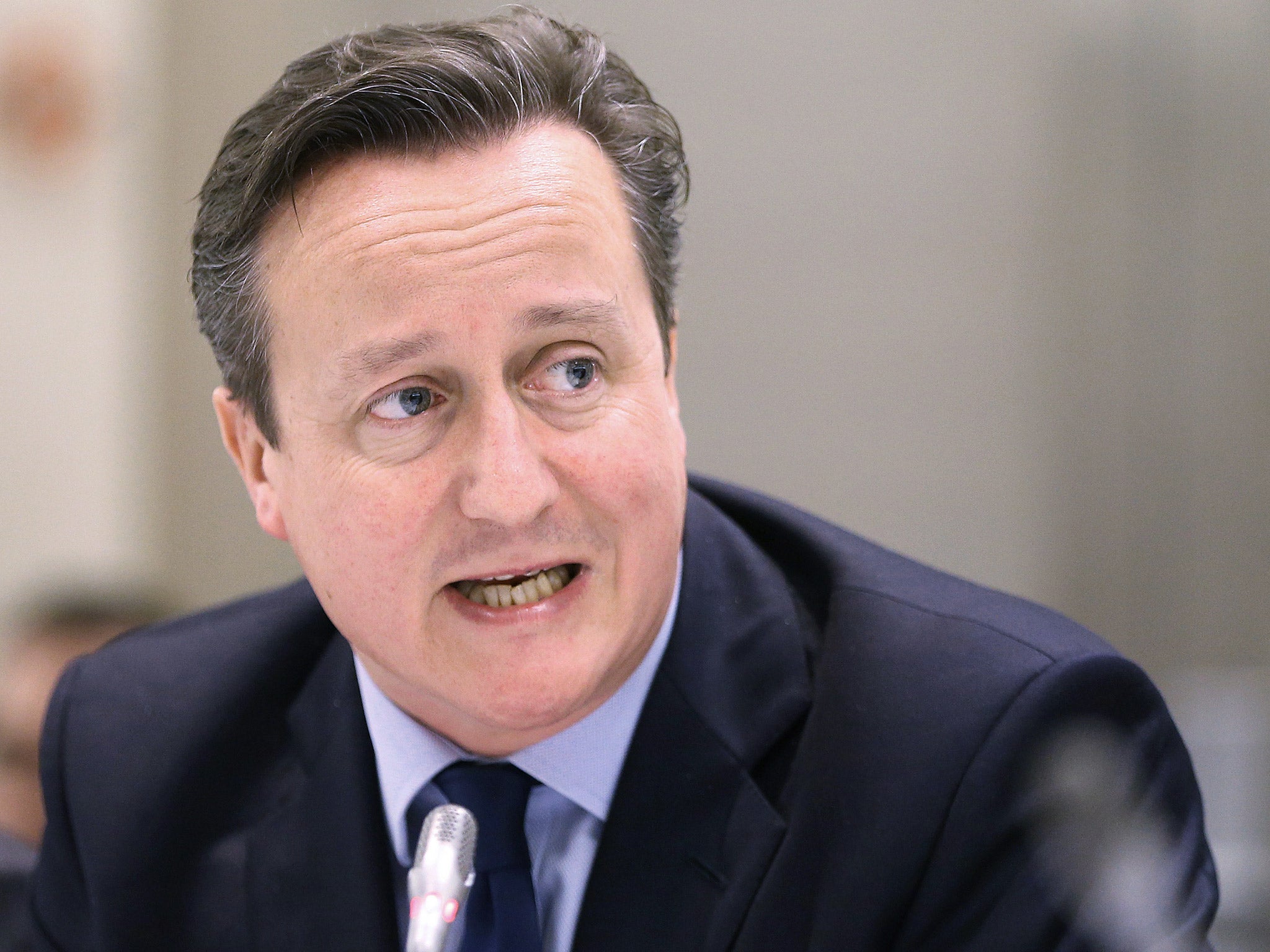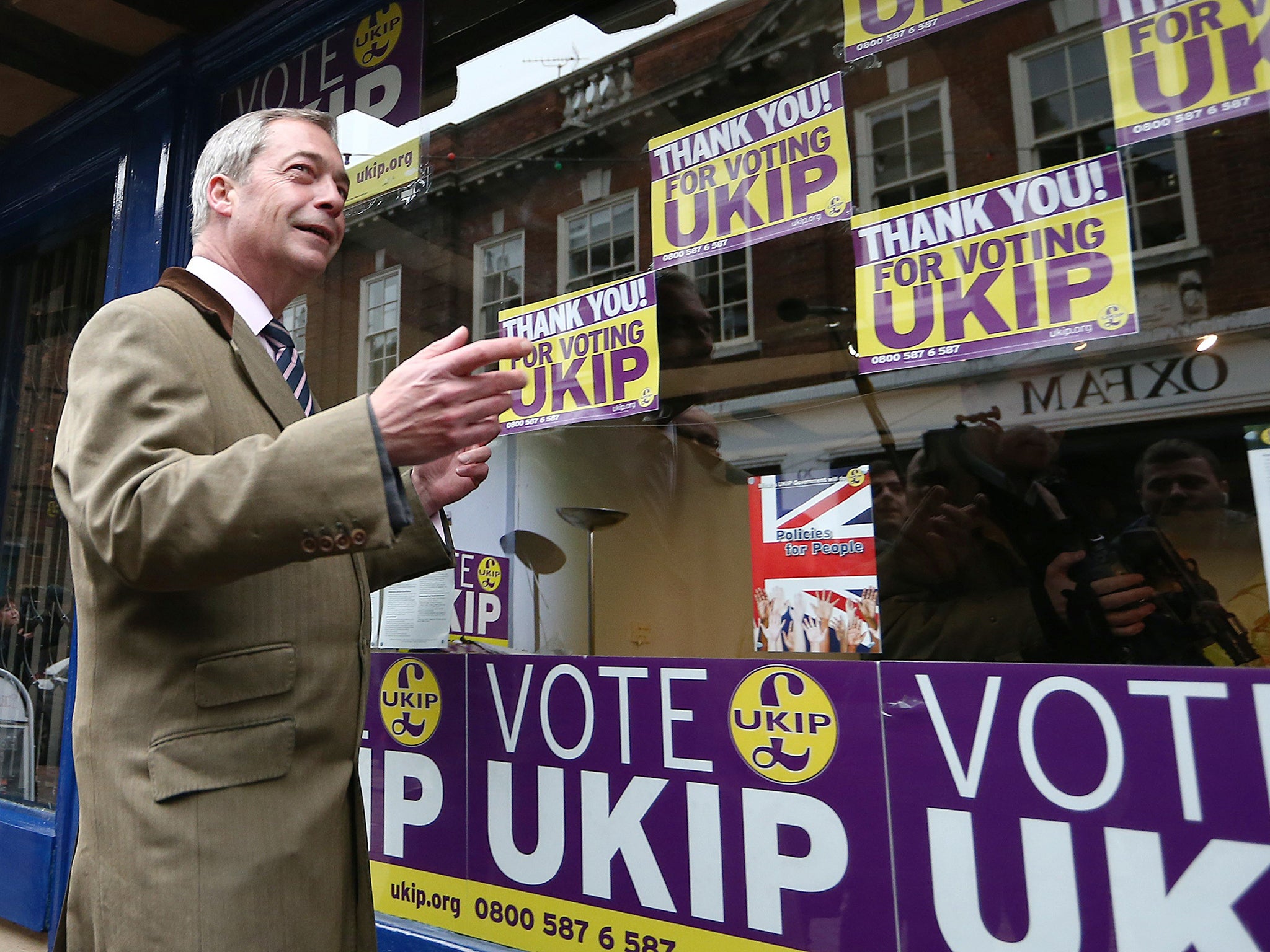Unhappy New Year for Cameron, Miliband and Clegg: They face most unpredictable general election in a generation
Our poll of polls sets scene for a turbulent run-up to 7 May

Britain is heading for the most unpredictable general election in a generation as voters turn their backs on the established parties, the Independent’s latest poll of polls discloses.
The findings carry grim news for David Cameron, Ed Miliband and Nick Clegg alike and set the scene for a turbulent run-up to polling day on 7 May 2015.
A weighted average of last month’s polls puts the Conservatives on 30 per cent (down three points since December 2013), Labour on 32 per cent (down six) and the Liberal Democrats unchanged on 10 per cent.
The main beneficiaries of their combined unpopularity are Ukip whose support has leapt to 15 per cent over the year (up five) and Greens whose support has more than doubled to seven per cent (up four).
John Curtice, professor of politics at Strathclyde University, who calculated the averages, said: “There is no necessary reason to believe that support for all of the insurgent parties will fall away in the next four months.”
Labour strategists will be alarmed that the party’s backing has shrunk and its lead over the Tories more than halved to two points amid apparent doubts over Mr Miliband’s leadership qualities.

He could still come close to achieving an overall parliamentary majority on a vote share of just 32 per cent, but conventional calculations are thrown into question by the advance of Ukip and the Greens and their impact on the marginal seats which hold the key to election victory.
The dramatic SNP surge in Scotland, largely at the expense of Labour, makes Mr Miliband’s position appear even more precarious ahead of the election.
Last year’s fall in average Conservative support – more than cancelling out a slight increase during 2013 – has come despite evidence of sustained economic growth and will fuel Tory MPs’ fears that Mr Cameron is presiding over a “voteless recovery”.

Prof Curtice said: “In the absence of any boost in Conservative performance, the odds on a Tory victory in May are beginning to lengthen significantly.”
The Prime Minister and Chancellor George Osborne will make a fresh attempt to focus on the economy in the New Year, arguing that electing a Labour government would risk Britain’s progress at a time of global economic uncertainty.
Mr Miliband will counter by focussing on the gap between wages and prices and promising a “recovery that reaches your kitchen table”.
Following Ukip’s stunning performance in the Euro-elections in May and its first two parliamentary by-election triumphs, the party has consolidated its claim to be the third force in British politics and defied predictions it would fall back after its high in early summer.
Backing for Nigel Farage’s party is 50 per cent higher than a year ago and almost double its support two years ago. The only cloud on the horizon for Ukip was a recent poll showing a sharp drop in his popularity with the public.

The Tories will need to claw back large numbers of votes from Ukip – two-thirds of whose supporters are former Conservatives – to have any chance of winning the next election.
Meanwhile, the Greens have maintained their steady progress as they gain the backing of left-leaning former Labour and Lib Dem supporters. The party has set itself a target of winning two more seats in May to add to its Brighton Pavilion stronghold.
On these figures the overwhelmingly most likely outcome remains the election of a “hung parliament” on 7 May, potentially paving the way to a power-sharing deal between Labour and either the Liberal Democrats or the SNP.
The political instability is increasingly prompting MPs and commentators to speculate on two elections being called this year.
Although parliaments are now fixed for five years, an election can take place earlier if a government loses a vote of no confidence or if two-thirds of MPs vote to force a fresh election.
Join our commenting forum
Join thought-provoking conversations, follow other Independent readers and see their replies
Comments